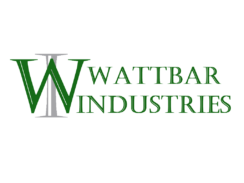Hazardous waste is a complex matter with potential consequences for both the environment and human health if mishandled. To properly manage hazardous materials and universal waste, you must first understand the associated dangers and the pertinent regulations governing waste disposal. Those who deal with hazardous waste may wonder if there is a designated “expiration date.” In other words, does hazardous waste expire? And is there a date to dispose of hazardous waste?
Here’s everything you need to know to help your organization implement the proper disposal methods.
How Do You Dispose of Expired Chemicals? Characteristics of Hazardous Waste and Methods of Disposal
Hazardous waste encompasses various materials characterized by properties or components that can adversely affect the environment and a potential hazard to human well-being. These properties typically include attributes such as toxicity, ignitability, corrosivity, and reactivity.
Some examples of hazardous waste include acidic, alkaline, and toxic chemicals, solvents, fuels, and other commonly used materials in businesses and schools.
Effectively disposing of hazardous waste necessitates the application of appropriate methodologies, each tailored to suit the nature of the hazardous materials involved. The following disposal methods are commonly employed:
- Chemical treatment. Some hazardous waste can be treated chemically to neutralize their harmful properties. This is often the case with certain types of chemicals.
- Incineration. Incineration is used for waste that can be safely burned at high temperatures, reducing it to less harmful ash and gases.
- Secure landfills. Specialized landfills designed to contain hazardous waste safely are used for disposal. These facilities have protective barriers to prevent contamination of surrounding soil and groundwater.
- Recycling. Recycling is an ideal way to manage hazardous waste and can possibly lead to being deemed a Non RCRA material. For example, hand sanitizer which could be a RCRA hazardous waste, can be recycled and would NOT be considered a hazardous waste. Wattbar’s recycling process for hand sanitizer is approved for all U.S. states.
Hazardous Waste Regulations
Hazardous waste regulations play a pivotal role in ensuring responsible waste management. These regulations are in place to protect the environment and public health by governing the generation, transportation, treatment, storage, and disposal of hazardous waste.
Specific regulations vary by location, and it is essential to research and adhere to both local and national guidelines. In some cases, these regulations and hazardous waste laws may vary state-to-state and be more stringent than the federal guidelines.. Be sure to check your local regulations and disposal requirements or any additional requirements.
Dispose of Hazardous Waste Safely and Effectively With Support From Wattbar Industries
Hazardous waste is a significant concern due to its potential harm to the environment and health. It is vital to understand the characteristics of hazardous waste, the appropriate disposal methods, and the regulations governing its management. Properly disposing of hazardous and solid waste is a legal obligation and a moral responsibility. Incorrect disposal can lead to soil, water, and air contamination, posing serious risks to ecosystems and human health.
To ensure the safe and compliant disposal of hazardous waste, it’s advisable to consult with experts in waste management. Wattbar specializes in hazardous waste disposal and offers guidance on navigating the complex landscape of regulations. Our waste control specialists are well-versed in properly handling and disposing of hazardous waste, making it easier for you to meet your environmental obligations.
While it is crucial to always research local and national guidelines to ensure compliance when in doubt, trust our experts to assist in properly disposing of hazardous waste. By doing so, you contribute to a cleaner, safer environment for everyone.
If you have hazardous waste, our team is ready to assist you with proper methods of disposal. Contact our team today to learn more about our national services!
